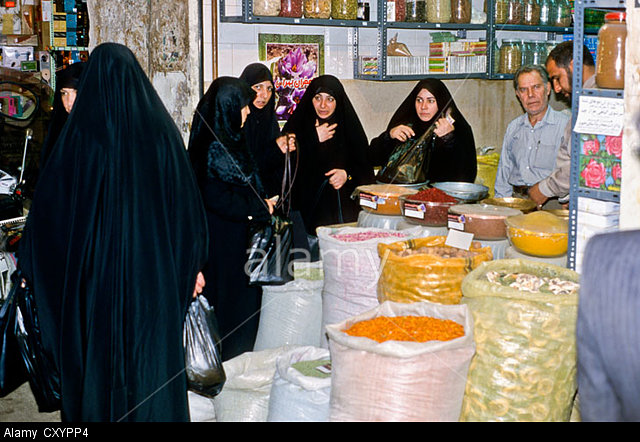
As millions in Iran are in the midst of celebrating the most important holiday in the Persian calendar, which brings the country to a standstill for 13 days, 2,000 miles away on another continent a group of Iranian diplomats are intensely engaged in high-level nuclear talks.
The ancient Zoroastrian festival marking the spring equinox, Nowruz, which started on Saturday, encompasses the revered tradition of Eid-Didani, or visiting one another. So extensive are the festivities that some people visit as many as seven or eight families a day. Sometimes they are host to the very same people they visited that morning.
This year, the nuclear negotiations in the Swiss city of Lausanne, which are entering a critical phase ahead of a major deadline, are being debated over dried fruits, pistachio nuts and watermelon seeds.
“People are running out of patience, how long is this going to last?” said Jalal, a Tehrani citizen, who mentioned that the issue of the nuclear talks has come up in a number of his Nowruz visits. “We’re in limbo, we want to have an answer, whether it’s positive or negative.”
Amir, a construction worker, echoed Jalal, saying that many Iranians are holding their breath to see how the negotiations will affect the country’s sanctions-hit economy. “Our business is stagnant,” he said. “But we’re sure that we will hear good news. The situation will improve in the coming year and people will finally breathe a sigh of relief.”
On Saturday, within a few minutes after 2:15am, the exact time when the year changed, Iran’s supreme leader, Ayatollah Ali Khamenei, who has the final say in all state matters including the country’s nuclear dossier, appeared on national TV, declaring the new year one of “harmony and solidarity with the government”.
It was widely seen as an indication that he was throwing his support behind the administration of the president, Hassan Rouhani, at this important juncture. Later that day, the 75-year-old ayatollah delivered his first major speech of the year, which usually has a great political significance.
In the speech, which took place at the religious city of Mashhad, Khamenei dismissed claims by western officials that there are people in Iran who are opposed to a diplomatic solution to the current stalemate over the country’s nuclear programme. “This is a lie,” he said. “There is no one in Iran who doesn’t want the nuclear issue to be resolved, and resolved through negotiations. What the Iranian people don’t want is imposition and bullying from America.”
The outcome of the current negotiations is tightly linked to the life of many in Iran. The value of Iran’s national currency, the rial, has dropped dramatically in recent years as the result of western sanctions, which have compounded the country’s economic woes. Since taking office, Rouhani has managed to curb inflation and bring some stability, but much is at stake depending on how the talks conclude.
Morteza, a taxi driver working along Tehran’s historic and tree-lined Vali-e-Asr street, said people are confused about why the negotiations are taking so long to bear fruit. “We want to get out of this situation and hopefully the relations between Iran and the US will be normalised,” he said. “Maybe one day soon we’ll be able to fly directly from Tehran’s Imam Khomeini airport to that of John F. Kennedy.”
Hamed, a young shopkeeper from Tehran’s Moghaddas-Ardebili street, said: “We’re tired, we’re so tired and we want these negotiations to finish soon but every time we think we are going to hear something good, we hear that the negotiations have adjourned with no results.”
But not everyone is convinced that the negotiations are serious, or that they are going to bring Iran out of the cold in the event of an agreement. “It’s not going to move a thing,” said Mohammad-Javad, a 24-year-old who works at a clothes shop in Tehran’s Satarkhan street. “No matter what happens in the negotiations, whether they reach a deal or not, it’s not going to impact our business. Our business is bad and it’s not going to get better overnight.”
In Tehran’s Andisheh shopping centre, Mohammad has a small boutique selling scarves and women’s clothing. Negotiations will succeed, he said, “because both Iran and the US need it”. He added: “If they reach a deal, it won’t change my business, but if they fail, it will be a huge shock for every businessman in this country.”
Mohammad, who sells jewellery in Hafthoz square, disagrees. In his opinion, the ongoing talks are doomed to fail because Iran will never put up with the US. “America will never lift sanctions on Iran. They are our enemy.” he said. “Our people have endured very difficult times in the past years, I’m not optimistic that the situation will get better but I hope at least that it doesn’t get worse.”
Mojdeh’s cosmetics shop in Gha’em shopping centre in Tajrish, north of Tehran, boasts international brands, everything from L’Oréal to Garnier. “Our politicians know how to handle the situation so that we won’t have war,” the 40-year-old said. “But if the talks fail, the dollar will get more expensive to buy and people like me will have serious problems in importing original products from abroad,” she added.
Any news from the diplomatic rooms particularly creates volatility in Iran’s currency market. Goudarzi, who has a foreign currency exchange near Tehran’s Istanbul junction, said an agreement in Lausanne will have a knock-on effect on the country’s currency market. “Iran’s currency will benefit from an agreement almost immediately,” he said.
But there is one place where the current mood is perhaps felt more than anywhere else: Tehran’s grand bazaar, the heartbeat of the Iranian capital. “The fluctuations in the currency market affect us directly,” said Ehsan, who sells mobile phones there. “People don’t buy now because prices keep going up and down, but if the negotiations succeed, we will finally have some stability.”
The Guardian

Leave a Reply
You must be logged in to post a comment.